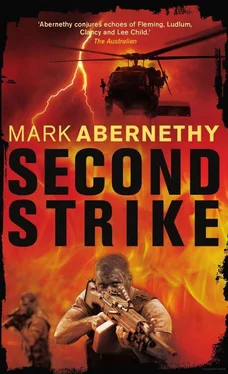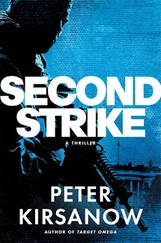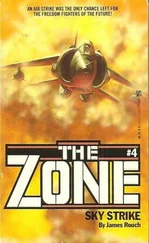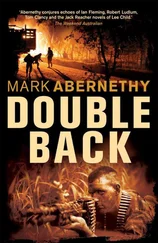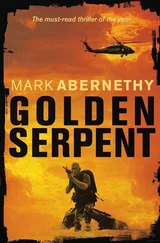Mark Abernethy - Second Strike
Здесь есть возможность читать онлайн «Mark Abernethy - Second Strike» весь текст электронной книги совершенно бесплатно (целиком полную версию без сокращений). В некоторых случаях можно слушать аудио, скачать через торрент в формате fb2 и присутствует краткое содержание. Жанр: Триллер, на английском языке. Описание произведения, (предисловие) а так же отзывы посетителей доступны на портале библиотеки ЛибКат.
- Название:Second Strike
- Автор:
- Жанр:
- Год:неизвестен
- ISBN:нет данных
- Рейтинг книги:4 / 5. Голосов: 1
-
Избранное:Добавить в избранное
- Отзывы:
-
Ваша оценка:
- 80
- 1
- 2
- 3
- 4
- 5
Second Strike: краткое содержание, описание и аннотация
Предлагаем к чтению аннотацию, описание, краткое содержание или предисловие (зависит от того, что написал сам автор книги «Second Strike»). Если вы не нашли необходимую информацию о книге — напишите в комментариях, мы постараемся отыскать её.
Second Strike — читать онлайн бесплатно полную книгу (весь текст) целиком
Ниже представлен текст книги, разбитый по страницам. Система сохранения места последней прочитанной страницы, позволяет с удобством читать онлайн бесплатно книгу «Second Strike», без необходимости каждый раз заново искать на чём Вы остановились. Поставьте закладку, и сможете в любой момент перейти на страницу, на которой закончили чтение.
Интервал:
Закладка:
Benny had arranged to get Mac to Idi, and Mac was using the down time to think through what was going on. Ari’s revelations had made sense but they still came as a shock to Mac. It was now clear why Ari had been so adamant back in ‘02 that there was another device somewhere in Indonesia. He also now had a better understanding of why Ari – working for the most paranoid and uncooperative intelligence organisation outside of the Chinese MSS – had been so keen to work with Mac. Ari had needed to stay close to the BAIS pursuit of Hassan, but the Israelis couldn’t operate in Indonesia or Malaysia, and consequently they had no in-country intelligence cooperation agreements in those countries. ASIS did, though, and that’s where Ari had successfully tried to pitch himself, riding on Mac’s Aussie back.
Mac thought through the wider ramifi cations. The Pakistanis, led by Hassan – a former ISI spook – had heisted two Dimona mini-nukes? It was hugely audacious stuff and explained why Mossad hadn’t simply put hits on the Pakistanis. Killing Hassan and Gorilla wouldn’t lead them to the second device. It had to be a search and seizure, almost like a police action. There might have been something else at play. Was Mossad treading carefully because the Pakistanis were still being protected by US intelligence? If the CIA had any hand in this it was going to end in tears. It always did when the Yanks played God.
Ari’s admission had increased Mac’s paranoia but it had also vindicated him in front of someone like Atkins. Not only were mini-nukes real, but starting in the mid-1960s they’d seen action as
US military SADMs, or Special Atomic Demolition Munitions, all the way through till the end of the Cold War. The SADM was a seventy-two kilogram cylinder, not much different to a mid-sized fi re extinguisher bottle, and while the full yield was slightly less than one kiloton, it could be dialled down to 0.01.
Far from being the stuff of conspiracy theories, mini-nukes were actually highly practical weapons that had been developed so soldiers and frogmen could deploy them with little training. They had code-keys on them and an anti-tamper protocol called a Limited Try Lock.
But as long as you had a code, anyone who could operate a Nokia phone could deploy a mini-nuke. They were so useful that the Israeli Dimona facility had been producing plutonium ‘pits’ since the 1980s and had stockpiled about four hundred of their own mini-nukes.
One of the things playing on Mac’s mind since establishing there was defi nitely a second device was the devastation it could wreak.
A mini-nuke was so portable, so easy to deploy and so powerful that there were few places it couldn’t be used. Kuta in ‘02 may have been a proof-of-concept – the real attack could be on Jakarta, KL or Singapore.
Or a city in Australia. As Suzi had said, Australia was already on JI’s hit list, under the auspices of Mantiqi Four.
The scientists at Dimona made standard plutonium pits for their mini-nukes but used differing sizes and mixes of the booster fuel. This allowed a special forces frogman to dial up to a full three-kiloton yield, or dial down to a localised blast that would fl atten a small building. The booster fuel was a mix of tritium and deuterium which allowed a very small amount of Plutonium 239 to be rendered incredibly powerful and ‘clean’ by nuclear standards. In one round of declassifi cations, the US Department of Defense admitted to developing an MRR, or a Minimal Residual Radiation weapon, which left almost no trace of the radiation that shows up on Geiger counters.
Looking down on the Malacca Straits from the Piper, Mac saw the shadow of the plane on the green sea, and thought how a shadow was exactly what Mossad had become to BAIS. The Israelis and Indonesians both wanted to fi nd that second mini-nuke, but for very different reasons. The Indonesians just wanted the damned thing, after what happened at Kuta. And the Israelis? Mac chuckled darkly. The last thing they wanted was the world’s largest Muslim nation getting hold of a mini-nuke, especially one made in the Negev Desert.
Mac pondered how far Ari would go to stop that happening.
They fl ew north for half an hour and then the pilot, a Malay bloke in his twenties called Samson, pointed to a fl at shape sticking out into the water to their left.
‘Penang,’ he shouted over the noise of the two props.
They turned westward and were soon hugging the south coast of Penang Island, the terracotta roofs of old George Town visible in the distance. After a few minutes they veered to the north in a steep bank as they lost altitude and seemed to be aiming for the palms. Mac tensed – Penang had an international airport, and this wasn’t it.
Samson sensed his discomfort and smiled. ‘It okay – there is room!’
They dropped like a stone as the revs came on and off, and then the wing fl aps came up. As they got down to the tree tops Mac realised there was a private airfi eld in the midst of a palm-oil plantation.
The landing was surprisingly good and as they decelerated along the strip Mac was glad to have taken this option, courtesy of Benny Haskell. They turned and taxied back to a mid-size steel hangar, where a local man in red board shorts stood leaning against an old white Land Rover.
The sea breeze made Mac’s overalls fl ap as he got out onto the sandy soil. Mac thanked Samson and walked up to John, the Land Rover guy. He was portly, about forty and impassive – possibly annoyed at Benny for pulling him away from something important? Either that or he was a spy.
They drove for fi ve minutes down the narrow plantation tracks, palm oil trees swaying above, while Mac tried to keep his two bags steady between his ankles. Then they went over a small rise and Mac’s breath was momentarily taken away. They were in a spectacular bay on the west coast of Penang Island, a jetty sticking into the sky-blue water and fi shing boats moored against the jetty or run onto the beach. It was idyllic, but Mac had to remind himself that this area was the oldest continuously active piracy region on the planet.
John walked Mac along the jetty, stopping halfway up. On Mac’s right was a closed-deck speedboat, painted black. At least forty feet long, it had a small open cockpit near the back and a long deck to the bow. Two large inboard props stuck menacingly from the stern and Mac could see no name or ID on the vessel. In the United States they were called sports cruisers, but in Italy and Greece they were known as cigarette boats because they were the favoured transport of smugglers. Mac put this black beauty in the second category. There were two large cargo hatches on the bow decking and he just knew there weren’t any beds or gin palaces below deck. This was a stripped-down, high-speed working boat.
‘Here is Mano,’ said John nervously, keen to get off the jetty.
Mac fl icked him fi fty US and smiled. ‘Thanks, champ.’
Mano put one Cat boot on the gunwale of the black beauty and leapt up onto the jetty. Mac’s height, Mano was built in the arms, chest and legs. He had a webbing holster at forty-fi ve degrees across his chest, which contained what Mac guessed was a Browning Hi-Power. The angle told him Mano was right-handed. In all cultures and without even speaking to him, Mano was instantly identifi able as a mercenary.
‘G’day,’ said Mac.
Mano raised his chin slightly, appraising the situation through aviator shades. ‘Going to Idi?’
Mac nodded and Mano offered his hand. After doing a palm shake, Mano leapt into the boat and stood with his arms open. Mac threw his pack and then the plastic shopping bag, warning, ‘This one’s heavy.’
Mano caught it by bending at the knees and then put both bags under the rear seats. Mac noticed that he moved with complete effi ciency and certainty – reminiscent of Maori and Tongan soldiers Mac had known.
Читать дальшеИнтервал:
Закладка:
Похожие книги на «Second Strike»
Представляем Вашему вниманию похожие книги на «Second Strike» списком для выбора. Мы отобрали схожую по названию и смыслу литературу в надежде предоставить читателям больше вариантов отыскать новые, интересные, ещё непрочитанные произведения.
Обсуждение, отзывы о книге «Second Strike» и просто собственные мнения читателей. Оставьте ваши комментарии, напишите, что Вы думаете о произведении, его смысле или главных героях. Укажите что конкретно понравилось, а что нет, и почему Вы так считаете.
